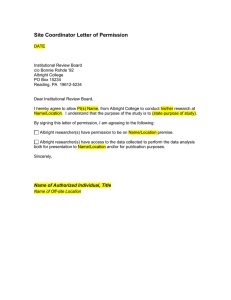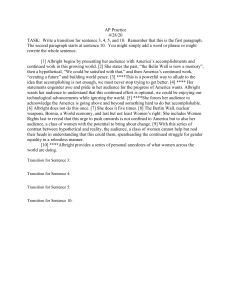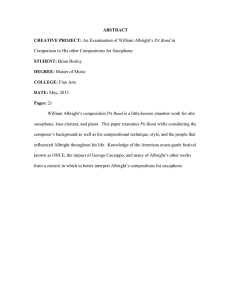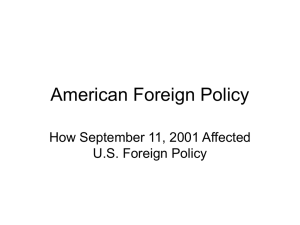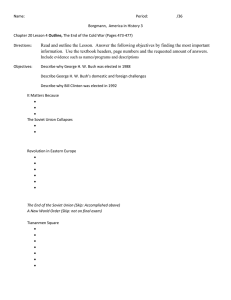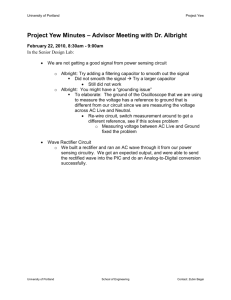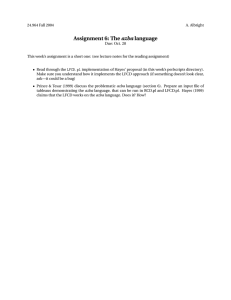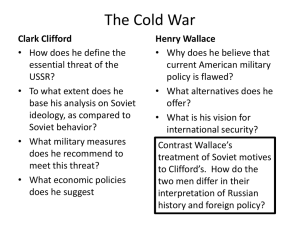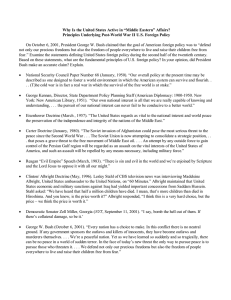Why Is the United States Active in “Middle Eastern” Affairs?
advertisement
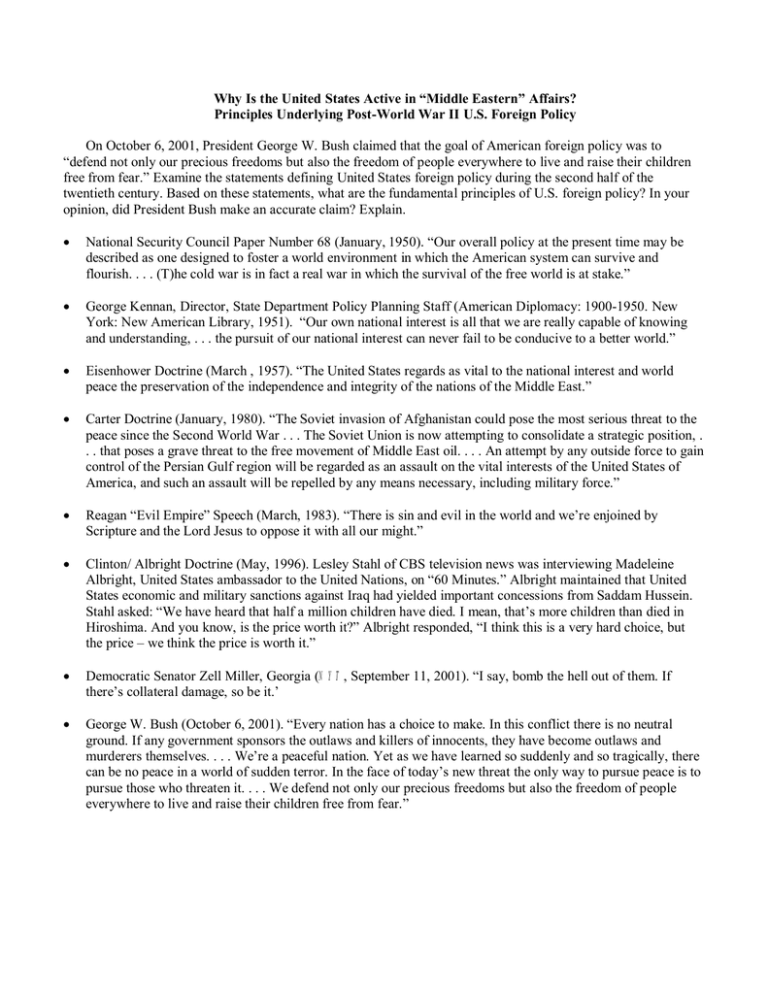
Why Is the United States Active in “Middle Eastern” Affairs? Principles Underlying Post-World War II U.S. Foreign Policy On October 6, 2001, President George W. Bush claimed that the goal of American foreign policy was to “defend not only our precious freedoms but also the freedom of people everywhere to live and raise their children free from fear.” Examine the statements defining United States foreign policy during the second half of the twentieth century. Based on these statements, what are the fundamental principles of U.S. foreign policy? In your opinion, did President Bush make an accurate claim? Explain. • National Security Council Paper Number 68 (January, 1950). “Our overall policy at the present time may be described as one designed to foster a world environment in which the American system can survive and flourish. . . . (T)he cold war is in fact a real war in which the survival of the free world is at stake.” • George Kennan, Director, State Department Policy Planning Staff (American Diplomacy: 1900-1950. New York: New American Library, 1951). “Our own national interest is all that we are really capable of knowing and understanding, . . . the pursuit of our national interest can never fail to be conducive to a better world.” • Eisenhower Doctrine (March , 1957). “The United States regards as vital to the national interest and world peace the preservation of the independence and integrity of the nations of the Middle East.” • Carter Doctrine (January, 1980). “The Soviet invasion of Afghanistan could pose the most serious threat to the peace since the Second World War . . . The Soviet Union is now attempting to consolidate a strategic position, . . . that poses a grave threat to the free movement of Middle East oil. . . . An attempt by any outside force to gain control of the Persian Gulf region will be regarded as an assault on the vital interests of the United States of America, and such an assault will be repelled by any means necessary, including military force.” • Reagan “Evil Empire” Speech (March, 1983). “There is sin and evil in the world and we’re enjoined by Scripture and the Lord Jesus to oppose it with all our might.” • Clinton/ Albright Doctrine (May, 1996). Lesley Stahl of CBS television news was interviewing Madeleine Albright, United States ambassador to the United Nations, on “60 Minutes.” Albright maintained that United States economic and military sanctions against Iraq had yielded important concessions from Saddam Hussein. Stahl asked: “We have heard that half a million children have died. I mean, that’s more children than died in Hiroshima. And you know, is the price worth it?” Albright responded, “I think this is a very hard choice, but the price – we think the price is worth it.” • Democratic Senator Zell Miller, Georgia (NYT, September 11, 2001). “I say, bomb the hell out of them. If there’s collateral damage, so be it.’ • George W. Bush (October 6, 2001). “Every nation has a choice to make. In this conflict there is no neutral ground. If any government sponsors the outlaws and killers of innocents, they have become outlaws and murderers themselves. . . . We’re a peaceful nation. Yet as we have learned so suddenly and so tragically, there can be no peace in a world of sudden terror. In the face of today’s new threat the only way to pursue peace is to pursue those who threaten it. . . . We defend not only our precious freedoms but also the freedom of people everywhere to live and raise their children free from fear.”
